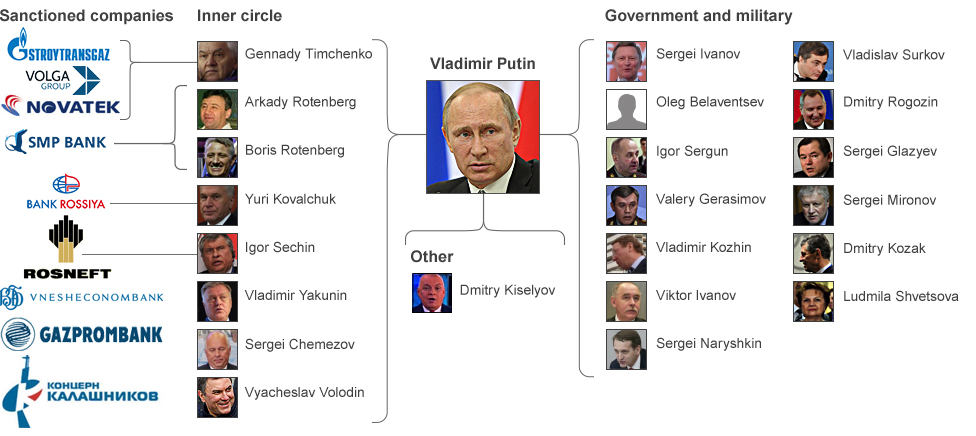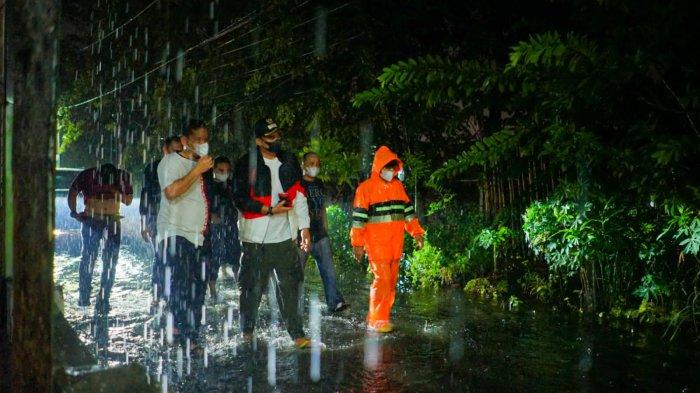The Remaking Of Russia's Economy: Putin's War Machine

Table of Contents
Sanctions and Their Impact on Russia's Economy
The imposition of sweeping Western sanctions has dealt a significant blow to Russia's economy, triggering a cascade of interconnected effects. These sanctions, targeting various sectors, aim to cripple Russia's ability to wage war and exert influence on the global stage. Understanding the ramifications of these sanctions is crucial to grasping the current state of Russia's economy.
Financial Sector Fallout
The financial sector has been particularly hard-hit. The initial shock resulted in:
- Significant capital flight: Billions of dollars flowed out of the country as investors sought safer havens.
- Devaluation of the ruble: The Russian ruble experienced a sharp decline against major currencies, impacting purchasing power and increasing inflation.
- Restrictions on access to international financial markets: Exclusion from the SWIFT system severely hampered Russia's ability to conduct international transactions. This impacted everything from trade financing to accessing foreign capital.
- Impact on foreign investment and trade relations: Foreign direct investment plummeted, and trade relations with many Western countries were severely disrupted.
- Rise in inflation and economic instability: Sanctions, coupled with supply chain disruptions, led to a surge in inflation, impacting the cost of living for ordinary Russians.
Examples of specific sanctions include restrictions on access to certain technologies, limitations on oil and gas purchases, and the freezing of assets held by Russian individuals and entities. The cumulative effect of these measures has been to significantly constrain Russia's economic activity.
Energy Sector Adjustments
Russia's reliance on energy exports has been a double-edged sword. While energy revenues initially cushioned the impact of sanctions, the long-term prospects are less certain:
- Shift in energy export markets towards Asia: Russia has sought to redirect its energy exports to Asian markets, particularly China and India, but these markets may not fully compensate for the loss of European demand.
- Impact of price caps on Russian oil and gas: International price caps on Russian oil have limited its revenue-generating capacity.
- Investment in domestic energy infrastructure: Russia is investing in its domestic energy infrastructure to reduce its reliance on Western technology and expertise.
- Development of alternative energy sources: While largely underdeveloped, there's an increasing focus on developing domestic renewable energy alternatives to lessen dependence on fossil fuels.
- Long-term implications for Russia's energy dependence: The reliance on energy exports remains a significant vulnerability, and diversification of the economy remains a pressing need.
Economic Diversification and Import Substitution
Faced with sanctions, the Russian government has pushed for economic diversification and import substitution, aiming to reduce reliance on Western imports.
Promoting Domestic Production
The Kremlin has launched initiatives to support domestic industries, with varying degrees of success:
- Government initiatives to support domestic industries: Subsidies, tax breaks, and protective tariffs have been implemented to stimulate domestic production.
- Challenges in technological advancement and innovation: Russia faces significant challenges in technological innovation, hindering its ability to compete globally.
- Focus on import substitution policies and their effectiveness: Import substitution has shown some results in certain sectors but faces limitations due to technological gaps and lack of global competitiveness.
- Growth in certain sectors (e.g., agriculture, defense): Some sectors, particularly agriculture and defense, have experienced growth, but this is often at the expense of other sectors.
- Limitations and challenges in achieving true diversification: True diversification requires significant investment in R&D, technological advancement, and structural reforms—challenges that Russia currently faces.
Technological Dependence and Isolation
Sanctions have severely restricted Russia's access to advanced technologies, further hampering its economic prospects:
- Impact of sanctions on access to advanced technologies: Restrictions on technology imports have hampered many sectors, particularly those reliant on Western components and software.
- Difficulty in maintaining and upgrading existing infrastructure: Without access to necessary parts and expertise, maintaining and upgrading existing infrastructure is becoming increasingly challenging.
- Opportunities for technological development within Russia: The sanctions have created an incentive to develop domestic technology, but progress is likely to be slow and limited.
- Challenges of attracting and retaining skilled workers: Brain drain continues, with skilled workers seeking opportunities abroad.
- Long-term implications for technological development: The isolation resulting from sanctions could have significant long-term consequences for Russia's technological development and overall economic competitiveness.
The Military-Industrial Complex and its Economic Influence
The war in Ukraine has significantly amplified the influence of the military-industrial complex on Russia's economy.
Increased Military Spending and its Economic Consequences
The massive increase in military spending has profound economic ramifications:
- Redirection of resources towards the military: Significant resources are diverted from other sectors, limiting investment in infrastructure, education, and healthcare.
- Impact on other sectors of the economy due to budget reallocations: Funding cuts in other sectors create knock-on effects throughout the economy.
- Growth of the defense industry and its implications: The defense industry is experiencing significant growth, but this is often at the expense of other, potentially more productive sectors.
- Opportunities for corruption and inefficiency: Increased military spending creates opportunities for corruption and inefficiency, further hindering economic development.
- Long-term sustainability of this model: The long-term sustainability of an economy heavily reliant on military spending is highly questionable.
The Mobilization of Resources
Partial mobilization has had a direct impact on the workforce and the broader economy:
- Impact of partial mobilization on the workforce and economy: The mobilization of reservists has created labor shortages in certain sectors.
- Economic consequences of conscription and loss of human capital: The loss of skilled workers due to conscription represents a significant loss of human capital.
- Strain on the social security system: The war places significant strain on the social security system, with increased demands for support for families of mobilized soldiers.
- Increased demand for certain goods and services: There's increased demand for certain goods and services related to military needs.
- Long-term effects on demographic trends: The war and mobilization are expected to have long-term effects on Russia's demographic trends.
Conclusion
The war in Ukraine has triggered a profound restructuring of Russia's economy, characterized by sanctions, diversification attempts, and the overwhelming influence of the military-industrial complex. While the Kremlin seeks to adapt and create a more self-sufficient economic model, the long-term consequences remain uncertain. The future trajectory of Russia's economy will depend heavily on the duration of the conflict, the effectiveness of sanctions, and the ability of the Russian government to successfully navigate these unprecedented challenges. Understanding the intricacies of Russia's economy is crucial for analyzing the global geopolitical landscape. Continue exploring the complexities of this evolving situation and learn more about the ongoing transformations affecting Russia's economy.

Featured Posts
-
 Zaragoza Diploma Europeo Por Su Compromiso Con La Cultura
May 29, 2025
Zaragoza Diploma Europeo Por Su Compromiso Con La Cultura
May 29, 2025 -
 Prakiraan Cuaca Lengkap Sumatra Utara Prediksi Cuaca Medan Karo Nias Toba
May 29, 2025
Prakiraan Cuaca Lengkap Sumatra Utara Prediksi Cuaca Medan Karo Nias Toba
May 29, 2025 -
 Long Covid Studio Ecdc Sulla Riduzione Del Rischio Con La Vaccinazione
May 29, 2025
Long Covid Studio Ecdc Sulla Riduzione Del Rischio Con La Vaccinazione
May 29, 2025 -
 Live Nation Darien Lake High Concert Costs Fuel Lawsuit
May 29, 2025
Live Nation Darien Lake High Concert Costs Fuel Lawsuit
May 29, 2025 -
 Marquez Dominates Pole At Americas Moto Gp Extends Perfect Start
May 29, 2025
Marquez Dominates Pole At Americas Moto Gp Extends Perfect Start
May 29, 2025
Latest Posts
-
 Munguia Dominates Sucher Avenges Previous Knockout Loss
May 31, 2025
Munguia Dominates Sucher Avenges Previous Knockout Loss
May 31, 2025 -
 Rematch Triumph How Jaime Munguia Adjusted To Defeat Bruno Surace
May 31, 2025
Rematch Triumph How Jaime Munguia Adjusted To Defeat Bruno Surace
May 31, 2025 -
 Munguias Revenge Decision Victory Against Bruno Sucher
May 31, 2025
Munguias Revenge Decision Victory Against Bruno Sucher
May 31, 2025 -
 Jaime Munguias Rematch Victory Strategic Adjustments Pay Off Against Bruno Surace
May 31, 2025
Jaime Munguias Rematch Victory Strategic Adjustments Pay Off Against Bruno Surace
May 31, 2025 -
 Boxing Munguias Revenge A Closer Look At The Surace Rematch
May 31, 2025
Boxing Munguias Revenge A Closer Look At The Surace Rematch
May 31, 2025
